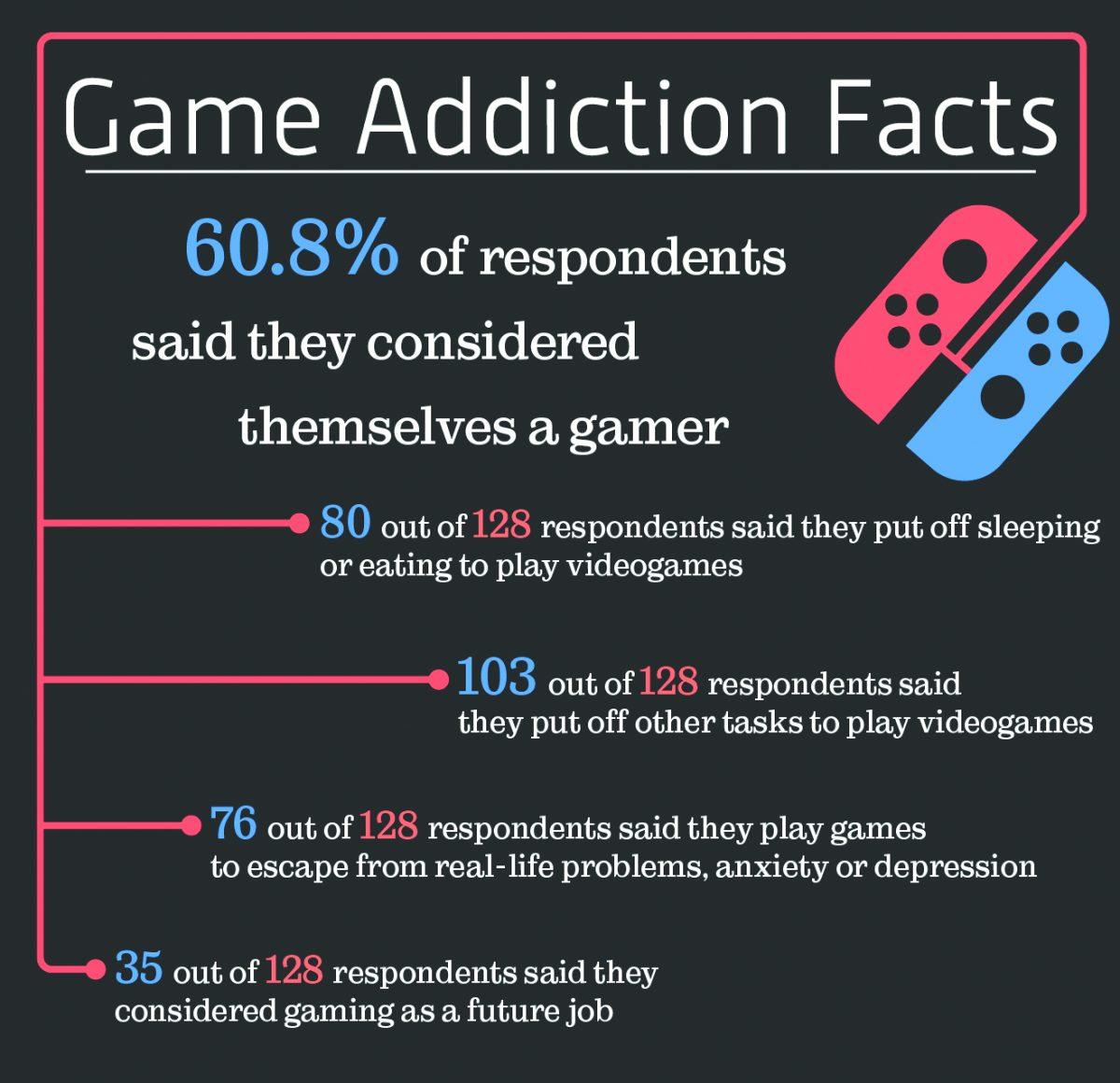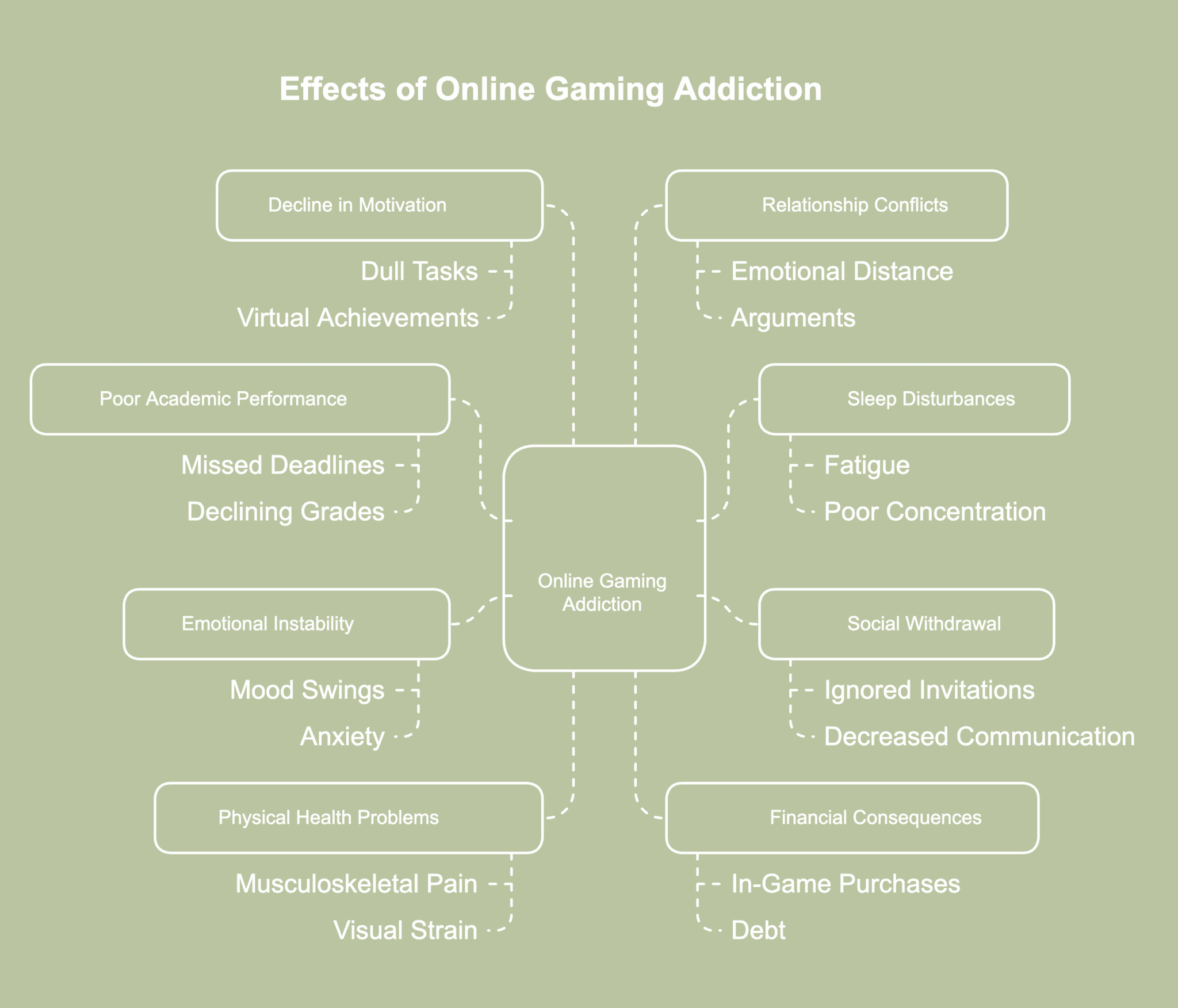Have you ever found yourself losing track of time while playing games? Maybe you’ve noticed your daily tasks slipping away or your mood changing after long gaming sessions.
Gaming addiction can sneak up on you, causing problems that affect your life more than you might realize. If you want to understand how this addiction can impact your health, relationships, and future, keep reading. This article will help you spot the signs and learn what challenges come with gaming addiction—so you can take control before it takes over.

Credit: utdmercury.com
Causes Of Gaming Addiction
Gaming addiction happens when playing games takes control of a person’s life. Many causes push someone into this habit. Understanding these causes helps to recognize and prevent addiction early. Causes often come from the mind, society, and the games themselves.
Psychological Triggers
The mind plays a big role in gaming addiction. Stress, anxiety, and depression can make games a way to escape reality. Games offer a sense of achievement and control, which some people lack in real life. These feelings keep players coming back for more. The brain also releases dopamine, a chemical that makes players feel happy while gaming.
Social Influences
Friends and family affect gaming habits. Peer pressure can push someone to play more. Online communities create a sense of belonging. Some players feel left out without gaming. Social rewards, like praise and teamwork, make games more attractive. This social bond can make it hard to stop playing.
Game Design Elements
Games are designed to keep players hooked. Features like rewards, levels, and challenges encourage continuous play. Some games use random rewards to surprise and excite players. Time limits and daily tasks make players return often. These design tricks make it difficult to stop playing even when needed.
Physical Health Issues
Gaming addiction can cause serious physical health problems. Many players spend long hours in front of screens. This habit affects the body in several ways. Poor health can reduce quality of life and cause discomfort.
Physical health issues from gaming addiction include eye problems, sleep troubles, and lack of exercise. These concerns need attention to avoid lasting damage.
Eye Strain And Vision Problems
Staring at screens for hours causes eye strain. Eyes become dry, itchy, and tired. Blurred vision and headaches are common. Bright screens and poor lighting make these symptoms worse. Over time, vision problems may develop.
Sleep Disruptions
Playing games late can disturb sleep patterns. Blue light from screens stops the body from feeling tired. This leads to difficulty falling asleep and poor sleep quality. Lack of rest affects focus and mood the next day. Chronic sleep loss harms overall health.
Sedentary Lifestyle Effects
Gaming addiction often means little physical activity. Sitting for long periods leads to weak muscles and poor posture. Risk of obesity and heart problems increases. Movement is important to keep the body healthy. Without it, physical strength and energy drop.
Mental Health Challenges
Mental health challenges are common problems in gaming addiction. Playing video games for too long can affect the mind deeply. It can cause serious issues that harm daily life and well-being.
These challenges often stay hidden at first. They grow quietly but impact thoughts, feelings, and behavior. Understanding these problems helps people seek help early.
Anxiety And Depression
Gaming addiction often leads to anxiety and depression. Players may feel worried or sad without clear reasons. Stress from games or lack of real-life social contact can increase these feelings. Anxiety can cause restlessness and trouble sleeping. Depression may lead to loss of interest in activities and low energy.
Impaired Cognitive Function
Excessive gaming can hurt the brain’s ability to think clearly. It reduces focus and memory skills. Decision-making becomes slower and less accurate. This problem affects school or work performance. The brain struggles to process information well after long gaming sessions.
Emotional Instability
People with gaming addiction often face emotional ups and downs. They may get angry or upset quickly. Small problems can feel overwhelming. Emotional control weakens, causing mood swings. This instability affects relationships with family and friends.

Credit: www.brightpathbh.com
Social Consequences
Gaming addiction affects more than just the player’s time. It deeply changes social life. Many players face serious problems with family, friends, and work. These social consequences hurt their daily life and future. Understanding these effects helps to see why gaming addiction is dangerous.
Isolation From Family And Friends
Gaming addicts often spend hours alone. They choose games over people. This leads to less time with family. Friends feel ignored and stop reaching out. Isolation grows as players lose touch with real life. Social skills weaken and loneliness increases.
Decline In Academic Or Work Performance
Gaming addiction reduces focus on school or work. Important tasks get delayed or forgotten. Poor performance causes stress and disappointment. Teachers and bosses notice the drop in effort. This can lead to failing grades or job loss.
Relationship Strains
Strong relationships need time and attention. Gaming addicts may forget about this. Arguments happen over missed plans or broken promises. Trust fades as gaming comes first. Family members and partners feel hurt and distant.
Financial Problems
Gaming addiction often leads to serious financial problems. Players spend more money than they plan. These costs can affect their daily life and savings. Money meant for bills or needs may go to games instead. This creates stress and debt for many.
Excessive Spending On Games
Many addicted gamers buy extra items or upgrades. These costs add up quickly without notice. Small purchases seem harmless but become large over time. Some players spend hundreds or thousands monthly. This spending harms their budget and savings.
Gambling-like Features
Some games use chance-based rewards like loot boxes. Players pay money hoping for rare items. This mimics gambling and can cause more spending. It tricks players into buying repeatedly. This cycle can lead to serious financial loss.
Economic Impact On Families
Family budgets often suffer due to gaming expenses. Essential needs like food or rent may be delayed. Arguments and stress increase between family members. Some families face debt and financial instability. The addiction’s cost affects everyone at home.

Credit: diamondrehabthailand.com
Strategies To Combat Addiction
Gaming addiction affects many people and can cause serious issues. Taking steps to control it helps improve daily life. These strategies focus on reducing gaming time and building healthier habits.
Using clear methods makes it easier to stay balanced. Each approach supports better mental and physical health. Below are practical ways to fight gaming addiction.
Setting Time Limits
Set strict rules for how long to play games. Use alarms or timers to stop playing on time. This prevents long hours that hurt sleep and work. Keep gaming sessions short and planned. Tracking playtime helps stay aware and avoid overuse.
Seeking Professional Help
Talk to a counselor or therapist about gaming habits. Professionals provide advice and support to manage addiction. They can find underlying problems causing excessive play. Therapy helps develop new skills to control urges. Support groups offer connection with others facing the same struggle.
Promoting Healthy Alternatives
Find fun activities outside gaming to fill free time. Sports, reading, or hobbies improve mood and focus. Spending time with friends and family builds strong bonds. Physical exercise reduces stress and boosts energy. Trying new interests makes life more exciting and balanced.
Frequently Asked Questions
What Are The Main Symptoms Of Gaming Addiction?
Gaming addiction symptoms include excessive play, loss of control, neglecting responsibilities, and withdrawal when not gaming. It causes mood changes and social isolation.
How Does Gaming Addiction Affect Mental Health?
Gaming addiction can lead to anxiety, depression, and increased stress. It impairs focus, lowers self-esteem, and disrupts emotional well-being.
Can Gaming Addiction Impact Physical Health?
Yes, gaming addiction often causes poor sleep, eye strain, headaches, and a sedentary lifestyle, leading to weight gain and muscle problems.
What Social Problems Arise From Gaming Addiction?
Gaming addiction may cause withdrawal from friends and family, communication issues, and difficulty maintaining relationships or social activities.
Conclusion
Gaming addiction causes many serious problems in life. It can hurt health, reduce sleep, and cause stress. People may lose interest in school, work, or friends. Family relationships often suffer because of too much gaming. It can lead to money troubles too.
Recognizing these problems is the first step to change. Small actions can help regain control and balance. Taking breaks and setting limits works well. Support from others makes a big difference. Avoiding gaming addiction helps build a happier, healthier life.









